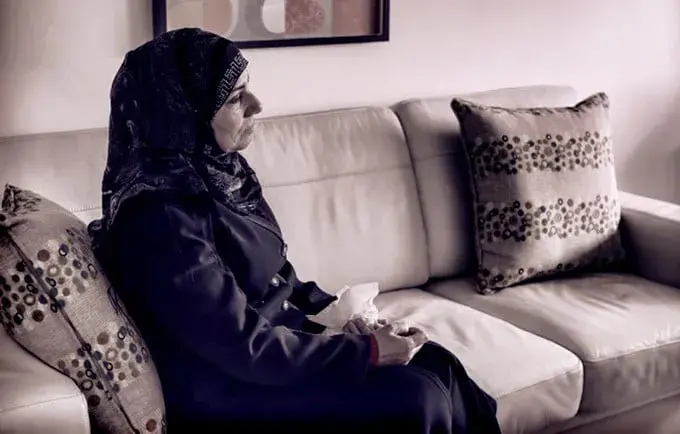Getting your period and becoming a woman is a natural development for every girl. In most parts of the world, discussing menstruation is a normal process and is explained both at school and at home. In Iraq, this subject remains a taboo, and not enough information is provided to young girls prior to menstruation.
“When I first got my period, I was confused and afraid. I thought I had done something wrong. At first, I was terrified to inform my mother of this development,” recalls Rusul, a 27-year-old Y-Peer educator from Baquba, in Diyala Governorate, eastern Iraq.
Rusul got her period for the first time at the age of 13. Similar to many girls in Iraq, she remembers how confused she was and how little information she had about this new transformation.
“I felt so embarrassed and did not know whom to turn to. I eventually went to my mother and explained to her what happened to me. She was my go-to person but I remember I was terrified. No one had ever told me this was going to happen to me. I didn’t understand what was happening. All I could think of was how I would go to school the next day and proceed with my daily chores,” she says.
To Rusul’s surprise, her mother was more helpful than she had expected; “She smiled at me and said: Congratulations! You’ve become a woman!” recalls Rusul.
The mother then sat her teenage daughter down and explained what menstruation was before showing her how to use the sanitary pads. “She even gave me educational leaflets about the monthly period and self-care,” adds the young girl.
A few years later, UNFPA opened a Women Social Centre in Rusul’s neighbourhood. With her best friend, she began attending the different sessions offered at the centre.
One of the sessions provided tackled puberty. The social worker discussed the mental and emotional state of women when menstruating. The course described how the lack of information on menstruation for young girls could lead to discomfort, shame, and isolation for several days each month.
“It was then that I realised how I could contribute positively to society and help young people, especially girls in my town,” she says, remembering the day she decided to become a youth Peer Educator.
“I believe that sharing one’s experience is the best way to raise awareness; I wanted to make a positive impact in my community and reach vulnerable girls to walk them through the challenges they are likely to face while growing up. I wanted to empower youth. I felt that the Youth Peer Network would give me that opportunity as I can relay messages about human rights, sexual and reproductive health, women rights, and life-skills in an interactive and modern way”, concludes the Peer Educator.



